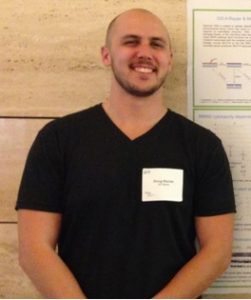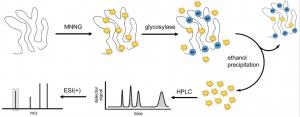
Doug Banda
Education: B.A. Chemistry, University of Louisville, 2012
From: Louisville, KY
Joined David Lab: January 2012
Outside of lab: I’m an outdoor sports and nature enthusiast.
I also enjoy sampling ingredients from local farms and cooking
at home for friends and family.
Research in David Lab:
My work entails the exploration of novel cellular DNA repair responses to environmental toxins such as 1,3-butadiene and methylating agents. Using a suite of biochemical and analytical techniques, I research the molecular mechanisms by which mammalian base excision repair glycosylases prevent mutations in cells, or initiate cell death in the event of overwhelming DNA damage. The information gleaned from my work could potentially be used to design new therapeutic strategies to target genetic susceptibilities underlying cancer progression and genomic maintenance in response to DNA damaging agents.

Links to Papers from David lab
Previous Research Experience:
Research Intern – Protein Analytical Chemistry, Genentech Inc., South San Francisco, CA
Pre-clinical development of antibody therapeutics, with a focus on assay development and physicochemical characterization in the department of Protein Analytical Chemistry. Research comprised the development of new multi-dimensional chromatography methods for the separation and quantitation of product related impurities for antibody therapeutics.
